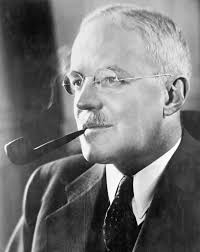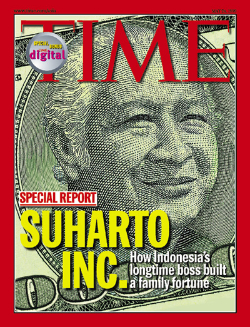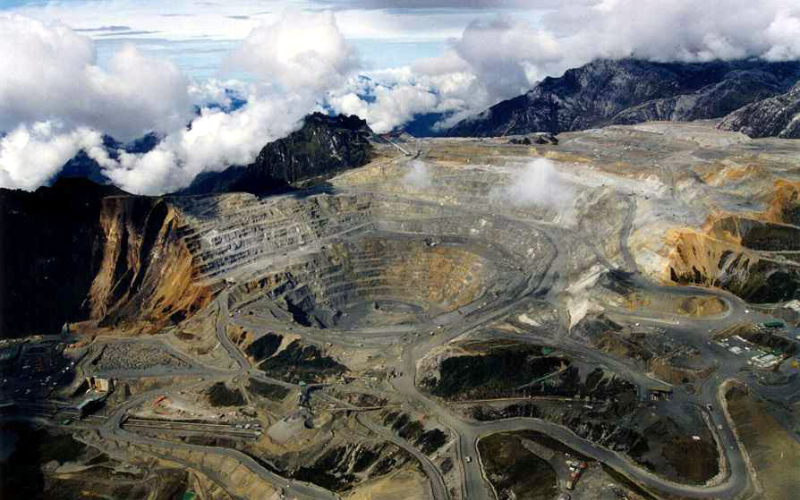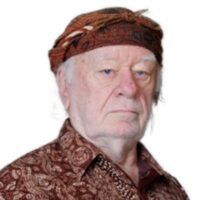Indonesians have been deprived of billions of dollars in royalties by a US mining giant for decades, claims an author being ‘monitored’ by the Indonesian government. Duncan Graham reports.
The Indonesian Republic’s 286 million poverty-plagued citizen owners of the world’s third largest mountain of gold and second largest copper deposit, have been deliberately dudded of billions, allegedly.
Decades of interviews and research by Australian academic historian Dr Greg Poulgrain allegedly show that Indonesians have been secretly cheated out of royalties through the gross undervaluing of gold deposits between mining and processing.
In brief, the ore is dug up at 15 grams a ton, but later measured for royalty purposes at one gram a ton.
The US company Freeport-McMoRan controls almost 50 per cent of the Grasberg mine in West Papua – the rest is owned by the Indonesian Government, though only since 2018.
Curse of gold
Poulgrain’s findings have been published in Indonesia as Kutukan Emas Papua. When the 311-page book was launched in May this year without the author present, the Jakarta event was reportedly monitored by Indonesian Intelligence agents.
It’s due to be released this year in English as Curse of Gold by Indonesia’s premier publisher Kompas Gramedia.
It shows the concentration of gold in the Papuan mountains was assessed by international geologists last century at 15 grams a ton. However, the company claims the value is one gram a ton, one-fifteenth of the original valuation. In 2023, about 50 tonnes of gold were recovered and mostly exported.
The retail price is now at an all-time high of $3,700 an ounce. (There are 28.3 grams in an ounce.)
The Western section of the island of New Guinea has been part of Indonesia since the 1969 UN-supervised ‘Freedom of Choice’ referendum. Just over a thousand selected leaders of 800,000 indigenous landowners voted to leave Dutch colonial control and become an Indonesian province.

CIA Director Allen Dulles
Poulgrain says that since the 1930s, the high value of the gold deposits was known by a select few scientists and a clique of intelligence services from Japan, the Netherlands and the US, but largely kept secret.
Though not to Allen Dulles, the head of the Central Intelligence Agency. He was also the lawyer representing Freeport.
In 1958, a US-backed insurgency involving soldiers and activists from the provinces of Sumatra and North Sulawesi was launched to unseat the pro-Communist Soekarno. It failed.
Indonesia’s founder-president apparently did not know of the riches and was disinterested in including Papua in the Republic. His priority was expelling the British from what was then Malaya through an armed campaign of Konfrontasi. Australian troops were involved in defending the transition to Malaysia.
After Soekarno was dumped in the 1965 military coup, reportedly involving the CIA, General Soeharto became President.
Poulgrain says he’s unsure when Soeharto first heard of Papua’s resources, but in 1967, he signed a 30-year contract with Freeport to mine copper tax-free for three years plus a 100,000-hectare concession.
No strings attached…
There was no Indonesian equity, compensation for landowners or environmental protection clauses. The World Bank reckons more than half the population of Indonesia earns less than $13 daily, and around ten per cent get below five Aussie dollars.
Mining in Grasberg started in 1972 when the US company’s commitment was $450m. Investments since have been huge. The operation, known as a “copper mine with some gold”, has an underground railway running slurry to the coast.
 The company has moved from a 550-metre open-cut to deep shaft mining, going below 350 metres. There are more than 20,000 workers – mainly Filipinos – and 7,000 security staff.
The company has moved from a 550-metre open-cut to deep shaft mining, going below 350 metres. There are more than 20,000 workers – mainly Filipinos – and 7,000 security staff.
“Some make extra money by sifting through the waste-dump tailings … It’s been estimated that about $450m in fine gold is washed down with the toxic waste each year, which contains mercury.
The gold deposits weren’t in the 1967 agreement, and it’s not known if Soeharto was paid, though that’s widely rumoured. His monthly salary was $2,700.
In 1999, a Time magazine cover story headed Suharto Inc claimed the second president was Asia’s biggest kleptomaniac, amassing $14B through corrupt deals during his 32-year autocracy.
His family sued for libel and won $150m; this was overturned in 2009 by Indonesia’s Supreme Court.
Professor Jean Dozy, the top Dutch geologist and his team found the deposit and measured more than 30 samples. They scaled the peaks and confirmed 15 grams/ton.
He was twice interviewed in Holland by Poulgrain: “I asked Dozy to read from his original report, which had been published shortly before the Nazi invasion of the Netherlands. He read in English:
“15 grams per ton – like a mountain of gold on the moon.
“The Dutch Geological Foundation in the early 1960s published a report in English that stated the gold concentration as ’15 grams per ton’
“Realising this was not a typo or misplaced punctuation was a pivotal moment.
“Because the prewar Dutch government control over the territory was so flimsy, they kept the richness concealed as both Hitler and the Japanese had expressed interest in the territory.”
Poulgrain said Joseph Luns, former Dutch FM and longest serving (1971 -84) secretary general of NATO, confirmed Dozy’s statement, adding that
the gold deposits were the richest in the world.
Freeport-McMoRan
Last year, Freeport “made a revenue of $39B,” a $4B increase over the previous year. However, future earnings are expected to be lower after operations were halted following an accident that killed two workers.
The company said sales will be lower in the next quarter as it had “temporarily halted operations” after an 800,000 tonne mud rush blocked access to the underground mine, killing two workers. Five others are missing.
Royalties in Indonesia vary widely according to the mineral and location. For gold, it’s generally between 3.5 and 5 per cent. They were increased this year.
Poulgrain said he’d been to Papua about 25 times using high-level administration contacts – though not into the mine – focusing on the apparent discrepancy of valuations. He told MWM:
“Royalties are assessed on the gold in the water and ore slurry of minerals piped 116 km to the coast. This is about one per cent, though the gold in the freshly mined ore is said to be fifteen times richer.
“With royalties based on 15 grams a ton, the Indonesian government could have funded education, health and welfare programmes for years.
“It seems the people may have been cheated.”
In an intro, Dutch senior geologist Dr Gerard Aalders describes Poulgrain’s book as a “forensic excavation of geopolitical deceit, corporate greed and colonial continuities … of betrayal of the Papuans.
“This is history as it should be: unsettling, illuminating, and profoundly relevant.
The curse of gold is not just that it corrupts. It conceals.
This book lifts that veil.”
Freeport McMoRan hasn’t responded to a request to comment on Poulgrain’s allegations.
Kiwi pilot kidnapped in West Papua leads to police raids in Australia
Duncan Graham has a Walkley Award, two Human Rights Commission awards and other prizes for his radio, TV and print journalism in Australia. He now lives in Indonesia.

